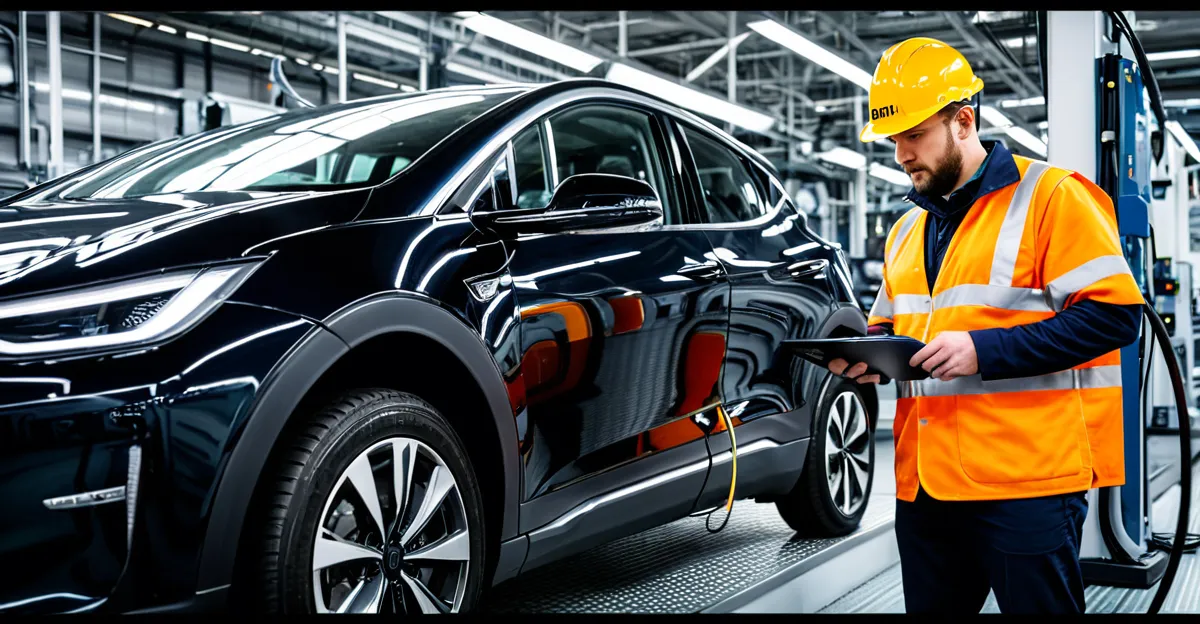Impact of the Electric Vehicle Industry on UK Employment
The rapid growth of the EV industry jobs UK segment significantly influences the UK job market, reshaping employment trends. As electric vehicle adoption accelerates, sectors linked to EV manufacturing, battery production, and associated technologies experience a notable upsurge in hiring. This change is evident in electric vehicle employment trends, which show increased demand for specialized skills and new roles.
Traditional automotive roles are transforming, not disappearing. Many existing jobs in vehicle assembly and maintenance require reskilling to address the technical nuances of electric drivetrains and battery systems. The immediate effects on existing automotive roles include shifts towards more technologically advanced positions, demanding knowledge of electronics alongside mechanical expertise.
Also read : How are UK automotive firms embracing circular economy principles?
Key sectors benefiting from this expansion include battery manufacturing plants, which drive intensive job creation with supply chain roles, and companies focused on EV charging infrastructure that require skilled technicians. Consequently, the EV sector is both creating new career paths and reshaping the existing workforce, contributing to a more dynamic and evolving UK job market. As electric vehicles become mainstream, understanding these employment shifts becomes essential for workers and policymakers alike.
Sectors Most Affected by the Rise of Electric Vehicles
The rise of the EV industry jobs UK is reshaping several critical sectors. Notably, battery manufacturing has seen notable expansion as it becomes central to EV production. This sector drives significant growth in supply chain roles, from raw material sourcing to assembly lines specializing in lithium-ion cells. Such developments strengthen the UK job market by creating numerous skilled positions.
In parallel : How are UK automotive companies fostering innovation in autonomous vehicles?
Simultaneously, the demand for charging infrastructure technicians is growing rapidly. The installation, maintenance, and upgrading of EV chargers require specialized expertise, translating into a surge in green transportation jobs. These roles attract workers with electrical and technical backgrounds, emphasizing the evolving nature of employment tied to sustainable mobility.
The traditional automotive industry is also evolving. Vehicle assembly roles face transformation, with teams needing new competencies in electronics and battery management systems. This trend reflects broader electric vehicle employment trends, where vehicle engineering integrates advanced software and hardware skills. These sector shifts illustrate how the UK workforce is adapting to the green revolution in transportation with an emphasis on new technologies and sustainable solutions.
Emerging Job Roles and Evolving Skills Requirements
The rise in EV industry jobs UK drives significant changes in job roles and skills demanded. New positions focus on EV technology specifics, such as battery management, electric drivetrain diagnostics, and software integration. These roles differ markedly from traditional automotive jobs, requiring a strong foundation in electronics and IT skills alongside mechanical knowledge.
Reskilling existing workers is essential. The shift toward electric vehicles compels many professionals to update their competencies, emphasizing skills demand electric vehicles reflects. Upskilling programmes help workers transition, reducing displacement risks and aligning careers with future technologies. This effort is vital for developing future-proof jobs UK, ensuring workforce adaptability amid continued innovation.
STEM education becomes increasingly important, fostering a talent pool capable of supporting EV advancements. Training initiatives focused on robotics, coding, and battery chemistry equip candidates with technical know-how. These educational shifts help supply the EV sector with skilled professionals while supporting the evolving UK job market. The integration of these strategies is crucial to meet the growth in EV job roles effectively and sustainably.


